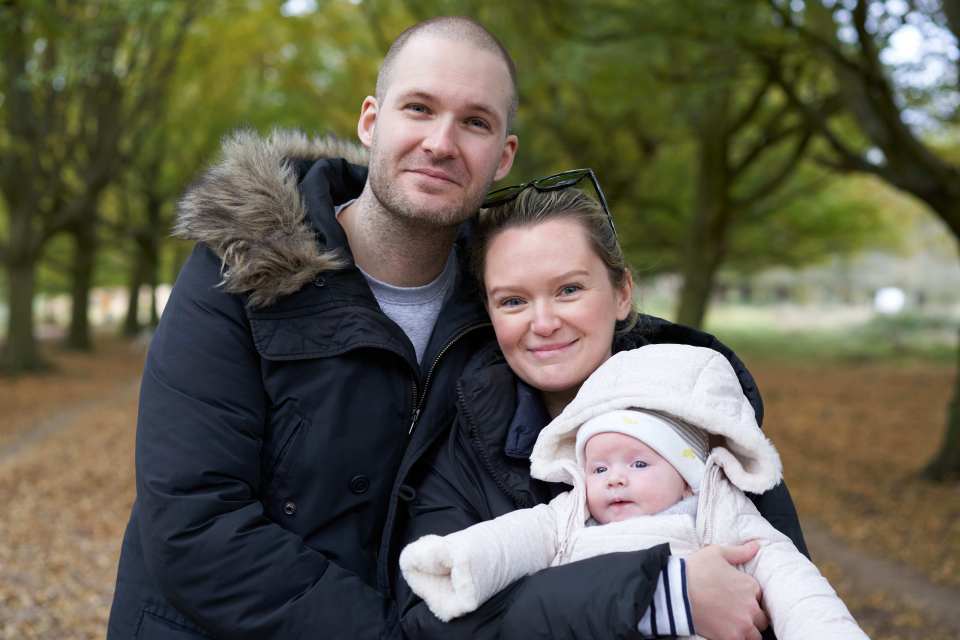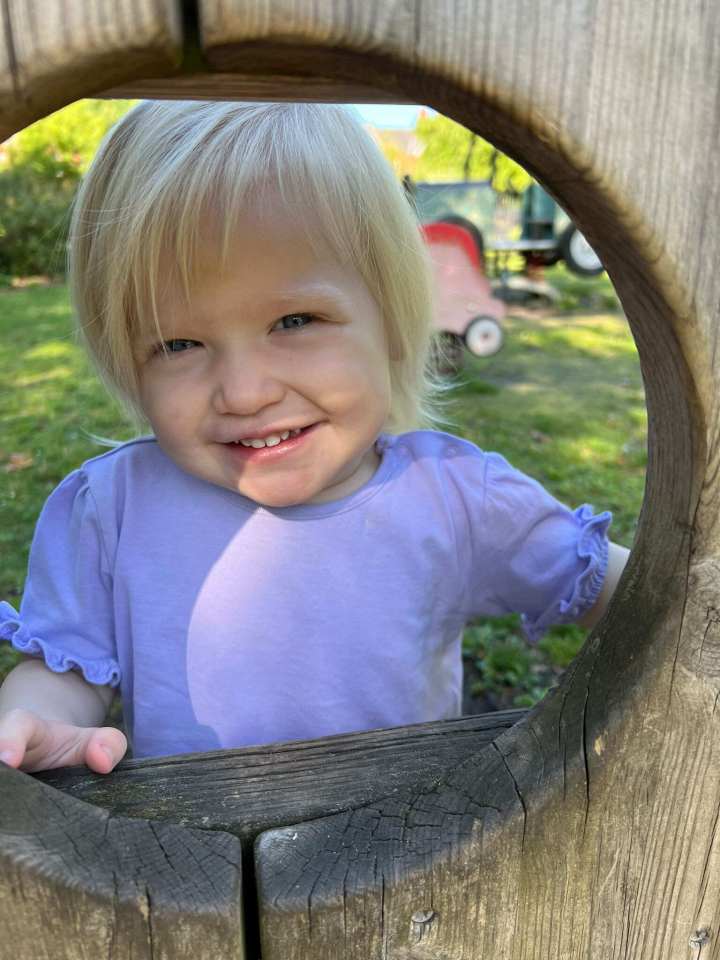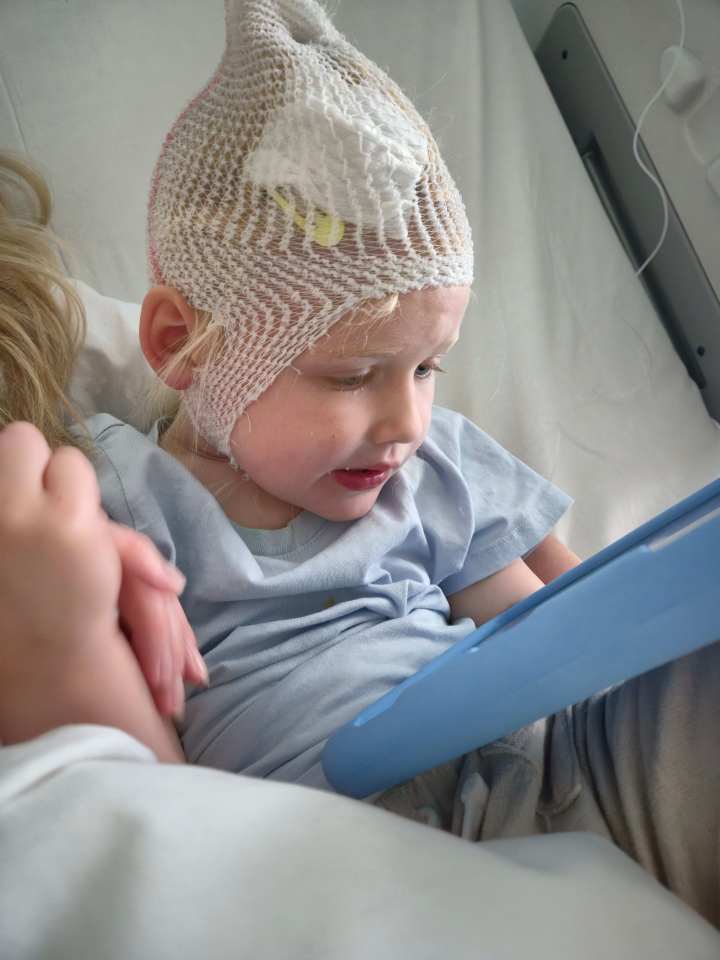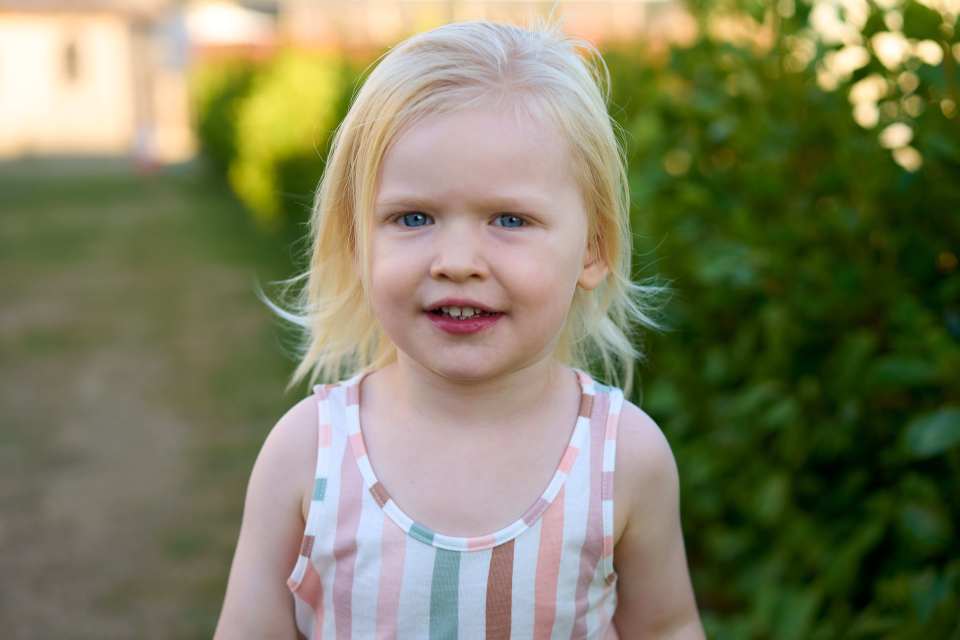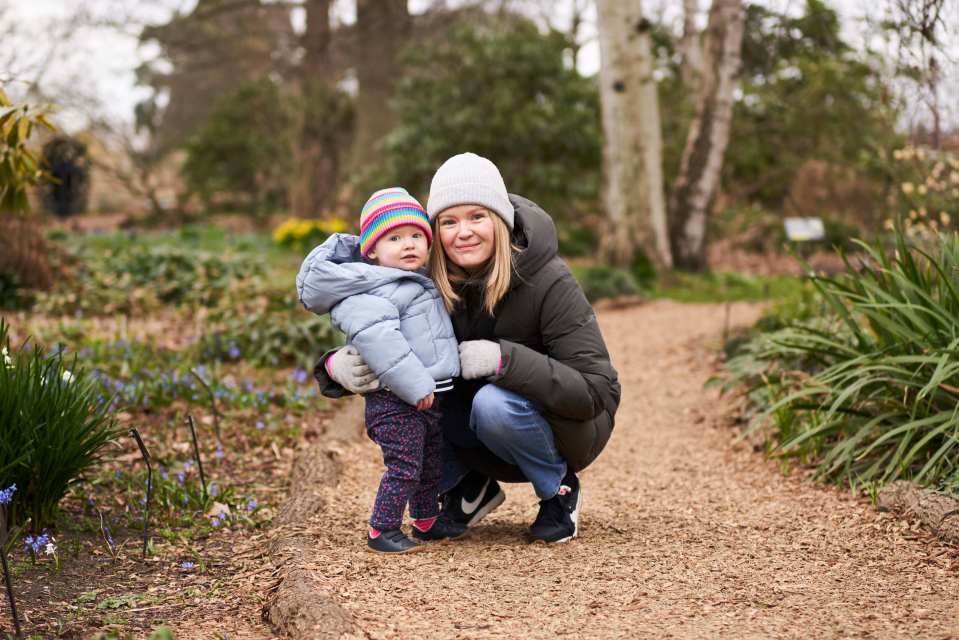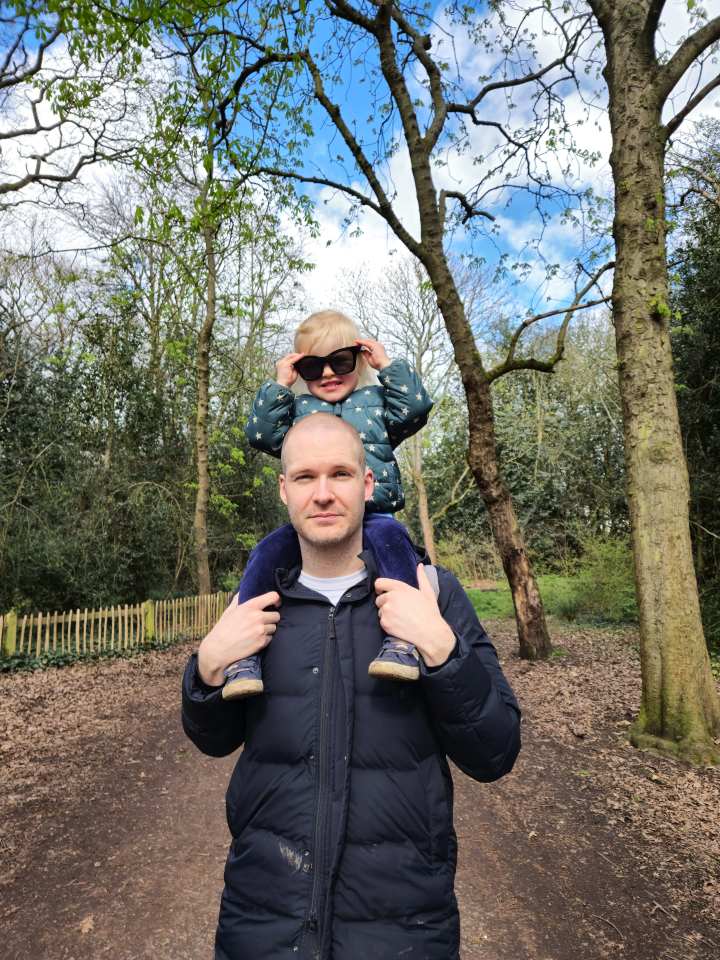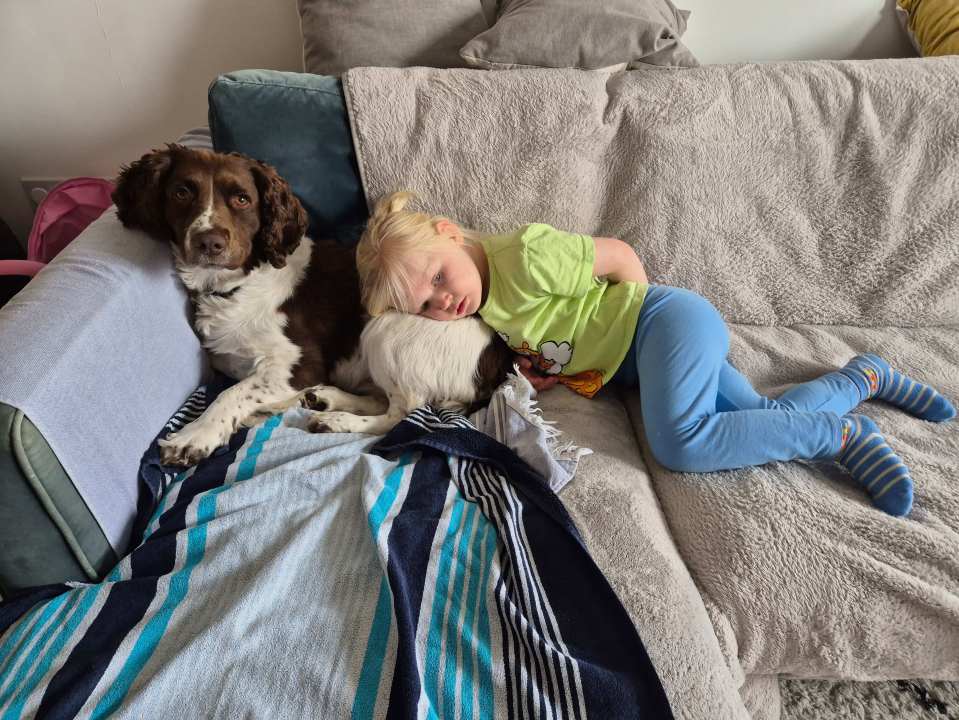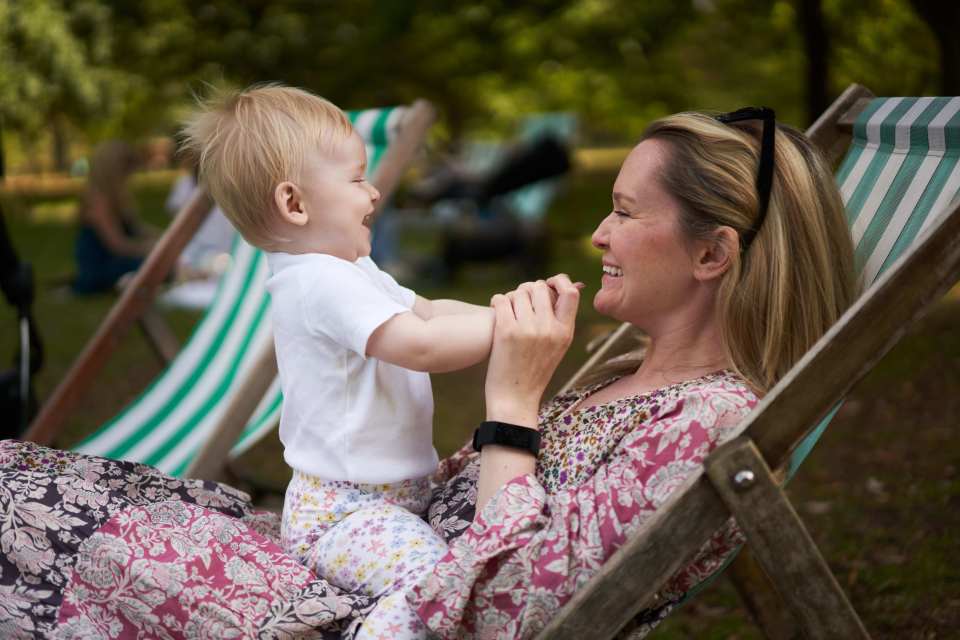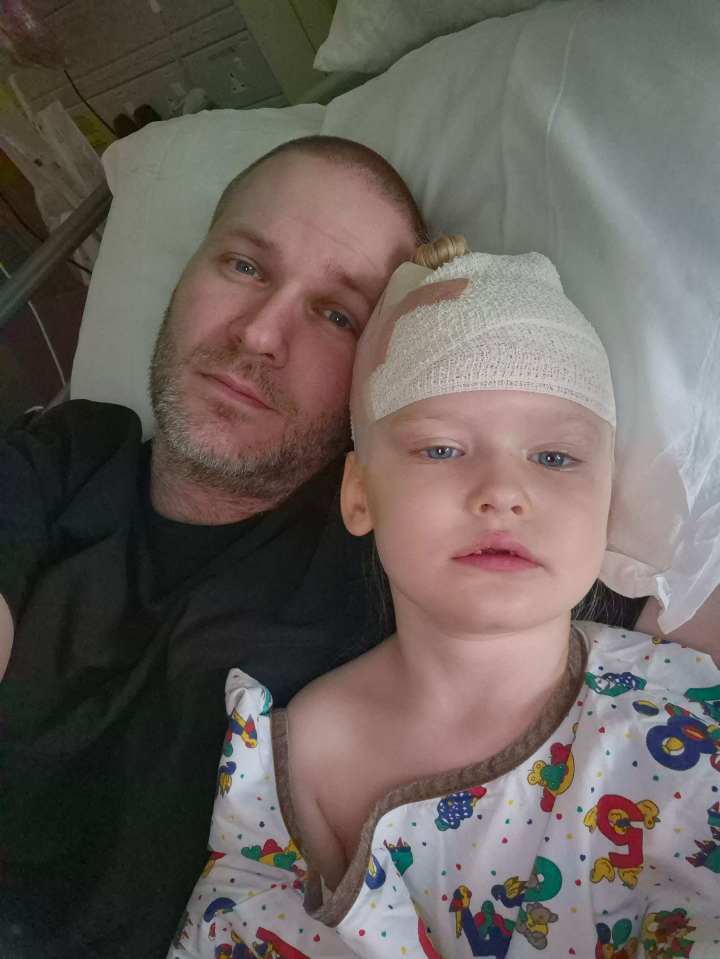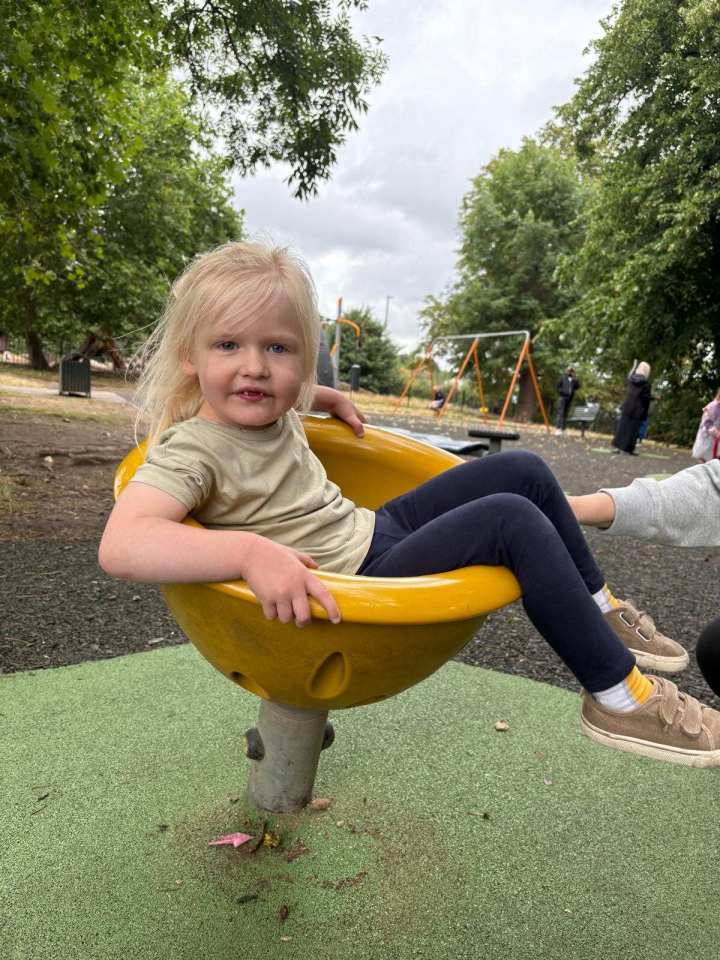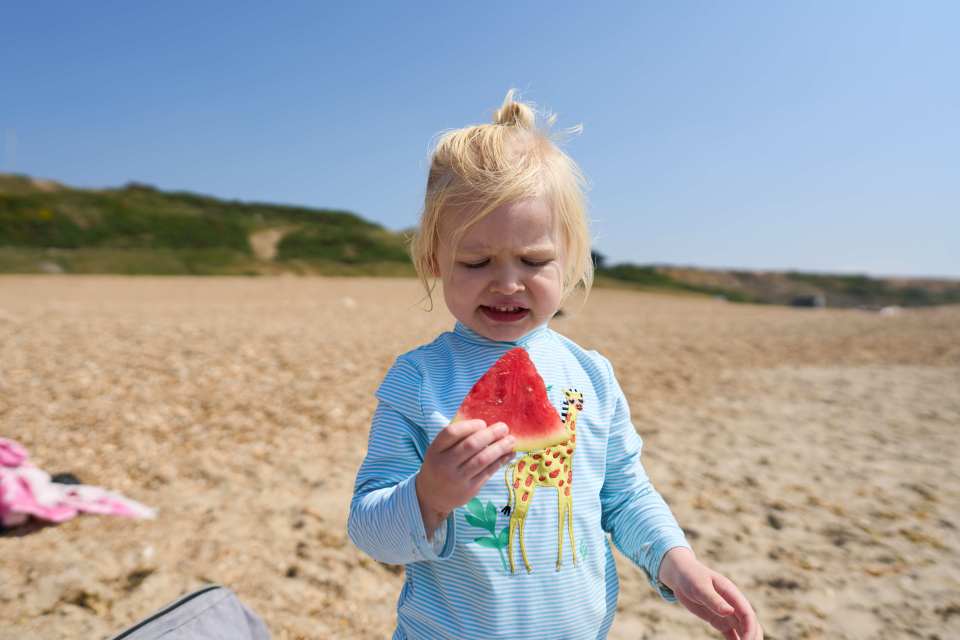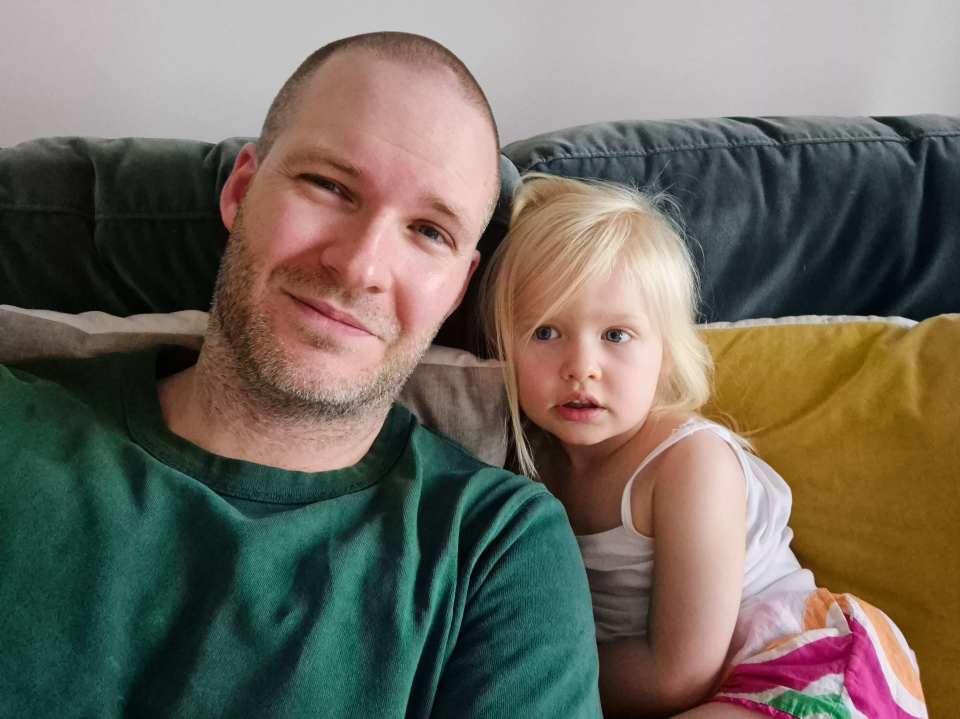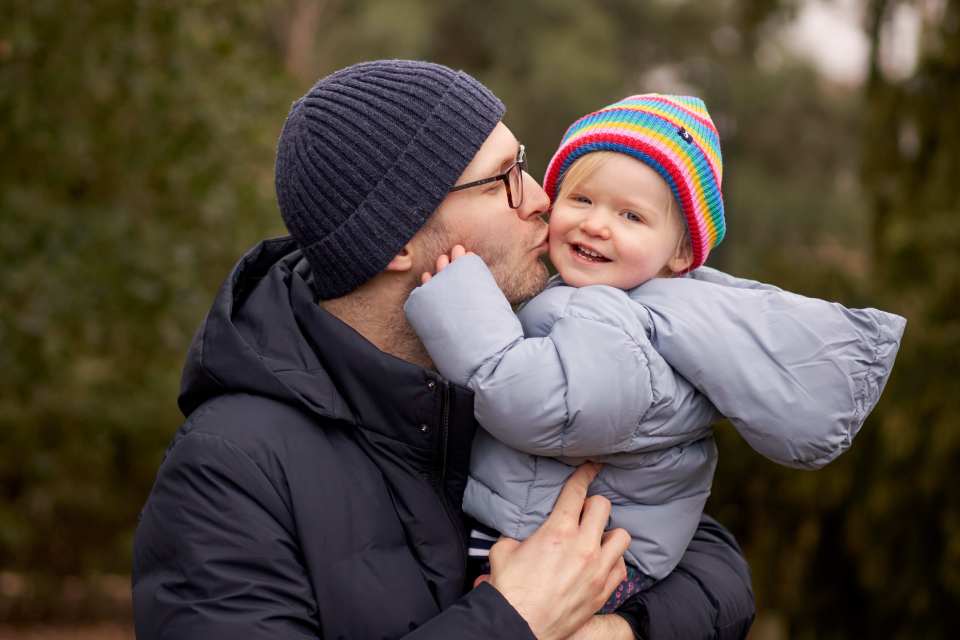EMMA Vukic and Max Bridge are in a state of “prolonged grief” as they watch their little girl succumb to a cruel disease that robs children of their speech, sight and memory.
The couple, both 38, said their nearly four-year-old daughter Rosie, developed as normal until the age of two, until she started forgetting words she’d already learned.
Max, a photographer and director, and Emma, a freelance producer from Acton, west London, continued to monitor their tot as she developed traits they reckoned could be signs of autism – such as hyperactivity, head banging and jaw clenching.
In September 2024, Rosie experienced her first seizure – and since then, she has had around 3,000 of them.
Her parents were advised to try gene testing.
In August, they were given the devastating news that Rosie has a rare, degenerative genetic disorder named Batten disease CLN2.
Read more on childhood illness
It affects just 30 to 50 children in the UK, according to Great Ormond Street Hospital for Children (GOSH).
Emma and Max said their “hearts were completely ripped into pieces” by the news because their little girl will eventually lose the ability to walk, speak, see and swallow, before suffering dementia, paralysis and, ultimately, death.
Without treatment, children with Batten disease don’t tend to live past 10 or 12 years old.
Rosie has been able to access treatment for the disease. While it won’t cure her, her parents hope it will slow the progression so they can spend more time making precious memories with her.
Max said: “It’s a phase of prolonged grief, that’s how this is going to be, and at every negative milestone, you’ll grieve again.
“Things have changed so dramatically already, and we’re really worried about the future.
“I want her to be here forever, I don’t want her to go – especially in the way that she’s going to go.”
Emma and Max, who have been together for 19 years, described their daughter as “very outgoing and inquisitive”.
“She’s very adventurous, she loves animals and people – she always wants to be right in the thick of everything,” Emma said.
“Everyone really connects with Rosie, she’s always been an extremely happy child filled with love and energy.”
Max added: “She’s the most beautiful little girl you’ll ever see… she’s my best mate.”
The couple said Rosie’s development was “pretty normal” until the age of two when her speech “never really came along”.
“At her peak, she could say around 70 words,” Max said.
“At that age it’s not that uncommon and we thought it would come along as she got older.
“Instead, she got worse and started to regress and lose that language.”
Emma said Rosie also started developing traits which potentially indicated she could have mild autism, such as “jaw clenching”, “head banging”, “sensory seeking” and being “super hyper”.
Feeling it could have been down to her young age, Emma and Max continued to keep an eye on her with guidance from medical professionals.
But on September 2, 2024, just before her third birthday, Rosie experienced her first seizure.
How do you process someone telling you your child is going to pass away so young?
Emma Vukic
She’s suffered thousands of seizures since then.
“On her worst day, she had 140 seizures,” Max said.
“She has a wide range of seizures, from a tonic-clonic seizure where she will shake and fall on the floor – her longest one lasted for 17 minutes.
“The other seizures she has are called atonic seizures, where it’s like someone turned the light off and without any warning, she crumples to the floor.”
As a result, Rosie was diagnosed with complex, drug-resistant epilepsy and, in January this year, Emma and Max were advised to try gene testing.
The parents faced an agonising, months-long wait for the results, but on August 8 they were informed Rosie has Batten disease CLN2.
“Our hearts were completely ripped into pieces, it was the worst thing we could have possibly imagined,” Emma said.
“How do you process someone telling you your child is going to pass away so young?”
Max added: “It was obviously a shock, and we were very upset – but I turned more towards, ‘what can we do? what are the treatments?’
“It became apparent there’s nothing we can do really, we were devastated.”
Fight for ‘more time’
According to GOSH, Batten disease CLN2 is caused by a change in a gene responsible for making a specific enzyme in the nervous system.
Since 2019, an enzyme replacement therapy has been used to help prevent neurological deterioration in children with the disease under a managed access agreement.
Rosie was diagnosed in time to receive the treatment, and she will have infusions every two weeks for the rest of her life, Max said.
The treatment may soon be unavailable for newly diagnosed children due to funding issues, according to the National Institute for Health and Care Excellence.
“The eventual path of the disease is the same, but children with treatment will get more time with their families – more birthdays, more good times,” Max said.
Emma said Rosie has “regressed a lot” over the last year and can no longer walk independently and is experiencing speech loss.
The pair feel Rosie is already suffering with childhood dementia.
“Who knows how long she has now, it could be a couple of years, it could be quite a bit longer,” Max said.
“We have to find a way to continue somehow, life and work still has to continue, even if it seems so pointless now.
“I want to spend every moment with Rosie and Emma, but that’s not possible.”
What is Batten disease?
BATTEN disease is a group of genetic conditions that cause cells to collect waste instead of getting rid of it.
It affects the structure and function of cells and ultimately causes their death.
The disease leads to seizures, vision loss and problems with thinking and movement.
Symptoms get worse over time and children diagnosed with it tend to die early.
There are 14 known types of Batten disease grouped into categories based on the age when symptoms begin.
The first signs and symptoms of Batten disease include:
- Vision loss
- Personality and behavioural changes
- Clumsiness and issues with coordination, balance and movement
- Seizures
Other symptoms may include:
- Difficulty with thinking and reasoning
- Speech and language problems, such speech delay, stuttering and repeating words or phrases
- Tremors, tics, muscle spasms and twitches
- Memory loss (dementia)
- Hallucinations and episodes of psychosis
- Sleep disturbances
- Muscle tightness
- Arm and leg weakness
- Heart problems, such as arrhythmia (in teens and young adults)
Batten disease that begins between the ages of six months and two to four years typically progresses rapidly and ends in death aged eight to 12.
If it is diagnosed aged five to eight, patients usually die in their late teens or early 20s.
Adults can also develop a form of the condition, which generally begins before the age of 40. Although age of death is variable, this type does shorten life expectancy.
Overall, Batten disease is very rare, affecting an estimated 100 to 150 people in the UK, according to the University of Edinburgh.
Source: Cleveland Clinic and the Brain Foundation
Emma and Max have launched a GoFundMe page to “give Rosie the best possible life with whatever time she has left”.
They hope to take her abroad for the first time to Disneyland Paris, and plan special trips and activities at home.
Their fundraiser, which has raised more than £19,000, will also be used to give Rosie music, water and rebound therapy.
Emma and Max hope to “shine a light” on Batten disease CLN2 to prevent other families from “feeling lost” with the proposed changes to treatment options.
“There needs to be more support for families and more research into the disease itself,” Max said.
The family have received support from the Batten Disease Family Association (BDFA), a UK charity providing advice and care to families.
Liz Brownnutt, chief executive of the BDFA, said: “Receiving a diagnosis of Batten disease is devastating and has a profound impact on the whole family.
“As a patient organisation, the BDFA are here to support families like Rosie’s from the point of diagnosis, to walk alongside them throughout their journey and ensure that they have the best possible support in place so that they are never alone.
“The work we do to advocate for families across health, education and social care is crucial to helping families to cope and thrive in the face of adversity.”
You can find Rosie’s fundraiser here or get more information on BDFA here.


